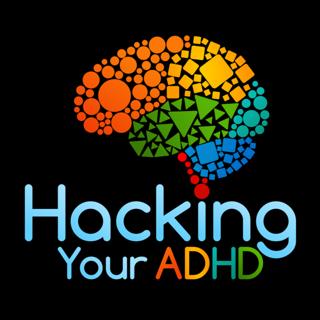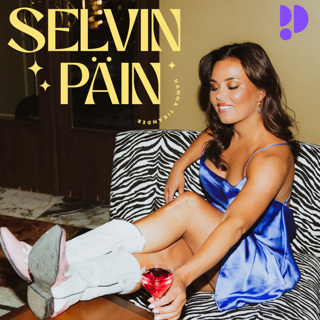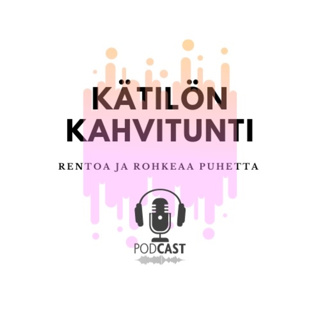
Leading with Strengths and ADHD in the Workplace with Rita Ramakrishnan
Hey Team! This week, I’m talking with Rita Ramakrishnan, a seasoned strategic executive and leadership coach with over 15 years of experience. Diagnosed with both ADHD and Autism Spectrum during her undergrad years, Rita reframed what could have been limitations into strengths and now looks to uplift other neurodivergent women in leadership roles. Currently, she is pursuing a master's degree in neurodivergent leadership at the University of Pennsylvania, intensifying her expertise in coaching and organizational strategy tailored to neurodivergent individuals. In our conversation, we cover everything from identifying when you’re dysregulated (and what to do about it) to designing teams that play to everyone’s strengths. Rita walks us through practical tools like outsourcing strategically, tracking your energy to uncover strengths, and building a leadership charter so teams can work more effectively together. It’s a conversation about leading authentically, creating systems that work for your brain, and how to advocate for your needs without falling into people-pleasing traps. If you'd life to follow along on the show notes page you can find that at HackingYourADHD.com/243 YouTube: https://tinyurl.com/y835cnrk Patreon: https://www.patreon.com/HackingYourADHD This Episode's Top Tips 1. Try creating a Minimum Viable Routine - your baseline routine that consists of the bare minimum you need in place to function. The point of an MVR is to take those non-negotiables and lock them in, either with automation, outsourcing, or simple systems. That way, when ADHD throws a curveball, you still have the essentials covered. 2. Instead of only measuring productivity by what gets checked off a to-do list, try looking at how you feel after activities. Track when you walk away from a meeting or task feeling energized, and when you walk away feeling drained. 3. Rejection sensitivity hits hard for many folks with ADHD. A short email reply, a period at the end of a text, or even a coworker sounding rushed can feel like a personal rejection. Rita’s advice is to deliberately separate yourself from the situation and try to depersonalize feedback. This reframing can help shift from identity-based thinking (like “I’m the problem”) to more situation-based thinking (“this may be tough, but it’s fixable”).
8 Syys 40min

Research Recap with Skye: Move Your Body, Calm Your Mind - Exercise for Kids with ADHD
Welcome to Hacking Your ADHD. I'm your host, William Curb, and I have ADHD. On this podcast, I dig into the tools, tactics, and best practices to help you work with your ADHD Brain. Today I'm joined by Sky Waterson for our research recap series. In this series, we take a look at a single research paper and dive into what the paper says, how it was conducted, and try and find any practical takeaways. In this episode, we're going to be discussing a paper called Effects of Physical Exercise on Anxiety, depression and Emotion Regulation in Children with ADHD, a systematic Review and meta analysis. Yep. Lot, lots in there, but we're gonna get into all of it, so don't worry. Now before we get started, I do wanna mention that this is still a new series, so we're going to be figuring out what works and what doesn't, and I'd love to hear what you think of it all. So if you have any thoughts, head on over to hackingyouradhd.com/contact and let me know. I appreciate all the feedback I've already gotten and we've definitely got to work on some things to make sure they're a little bit more organized and so we'll see how that goes. We've been already implementing some of that and I am sure you're gonna love it. New episodes of Research Recap come out every other Friday. All right, let's get into it. If you'd life to follow along on the show notes page you can find that at https://HackingYourADHD.com/242 https://tinyurl.com/56rvt9fr - Unconventional Organisation Affiliate link https://tinyurl.com/y835cnrk - YouTube https://www.patreon.com/HackingYourADHD - Patreon
5 Syys 14min

Climbing the Walls: ADHD, Women, and the Stories We’ve Missed with Danielle Elliot
Today I’m talking with Danielle Elliot, a health and science journalist, documentarian, and host of Climbing the Walls, an investigative podcast from Understood.org digging into the surge in ADHD diagnoses among women—especially since the pandemic. If that sounds familiar, it’s cause I did a number of ads for her show a few months back, and I just wanted to make sure that I mention that, since while I’m not getting paid for this episode, I have done work with Understood before and probably will be promoting more of their stuff in the future. Anyway, in our conversation today, we cover a lot of ground, from debunking the idea that no one knew women could have ADHD until recently, to how social media has reshaped the conversation, to why research on hormones and ADHD is still way behind. We also get into the everyday realities of living with ADHD, the default mode network, and why we need far more research into how ADHD shows up in women. It’s a mix of science, lived experience, and the kind of practical reflection that can help you rethink how ADHD fits into your life. If you'd life to follow along on the show notes page you can find that at http://hackingyouradhd.com/241 YouTube: https://tinyurl.com/y835cnrk Patreon: https://www.patreon.com/HackingYourADHD This Episode's Top Tips 1. Instead of guessing when you’ve overbooked yourself, start tracking it like an experiment. For a few weeks, note each day you have social, professional, or mentally demanding activities beyond your baseline, then try and figure out how many consecutive “on” days it takes before you feel fried. 2. Downtime doesn’t magically appear and needs to be scheduled on the calendar, or it often just gets eaten by other people’s needs or whatever’s loudest in the moment. If someone asks you to do something during that block, you can truthfully say you already have something scheduled. Treating self-care time as a legit appointment protects it from getting deprioritized just because it’s “only for you.” 3. A common ADHD trap is overestimating how awful or time-consuming a task will be, which makes it easier to avoid it. Try timing your tasks to give yourself actual data to challenge your brain’s “this will take forever” narrative and can turn a dreaded job into something you knock out in a couple of minutes. 4. Consider hormonal factors when tracking ADHD symptoms, as hormones have a big influence on your ADHD symptoms, yet are often overlooked. Hormonal changes can affect focus, energy, mood, and even how well ADHD medication works. Tracking your symptoms alongside your cycle or other hormonal shifts can help you spot patterns and adjust strategies accordingly.
1 Syys 46min

Retraining Your Nervous System with Dr. Ute Liersch
Hey team! My guest this week is Dr. Ute Liersch, a Chartered Counselling and Coaching Psychologist with over a decade of clinical experience and author of A Minimalist’s Guide to Becoming Resilient. Dr. Ute specializes in helping adults navigate anxiety, ADHD, and burnout. Her therapeutic approach is integrative, drawing from modalities such as Cognitive Behavioural Therapy (CBT), Acceptance and Commitment Therapy (ACT), Eye Movement Desensitization and Reprocessing (EMDR), and mindfulness-based therapies. Beyond her clinical practice, Dr. Ute is an associate lecturer at Birkbeck, University of London, and holds a Fellowship in Higher Education. In our conversation, we explore the nervous system beyond the textbook fight-flight-freeze model, including how our nervous system shapes our mood, motivation, and even the way we see the world. Dr. Ute explains why so many of us with ADHD find that our sympathetic nervous system is permanently on edge and how we can work on rewiring that response. We also talk about perfectionism, attention types, and what resilience looks like in real life, breaking it down into actionable steps that fit into our schedules and ADHD brains. If you'd life to follow along on the show notes page you can find that at http://hackingyouradhd.com/240 YouTube: https://tinyurl.com/y835cnrk Patreon: https://www.patreon.com/HackingYourADHD This Episode's Top Tips 1. Our parasympathetic nervous system can get stuck in a permanent state of “go time.” To help move our PNS back to a relaxed state, Dr. Ute suggests progressive muscle relaxation, where you are tensing and then releasing muscle groups one at a time so you can physically feel the shift from tension to ease. 2. Many of us have internalized the idea that there’s something fundamentally wrong with the way we work, think, or exist. Dr. Ute suggests replacing this assumption of personal defect with curiosity: “If I weren’t wrong, what would I need to feel safe?” This slight shift can open up room to problem-solve and tailor strategies to your actual needs. 3. We often talk about resilience like it’s a fixed trait—you either “have it” or you don’t. But Dr. Ute points out that resilience is about what you do, not what you are. It’s built in small, repeatable actions that teach your nervous system and your mind how to recover from stressors. Resilience isn’t about holding it together forever; it’s about giving yourself enough space and recovery so you can keep going when you need it the most.
25 Elo 47min

Research Recap with Skye: Late Diagnosis of Women in Sweden
Welcome to Hacking Your ADHD. I'm your host William Curb and I have ADHD. On this podcast I dig into the tools, tactics and best practices to help you work with your ADHD brain. And today I’m joined by Skye Waterson for our Research Recap series. In these episodes, we take a look at a single research paper and dive into what the paper says, how it was conducted, and try and find any practical takeaways. Today we’re going to be discussing a paper called Time after time: Failure to identify and support females with ADHD – a Swedish population register study As this is a new series, we’re going to be figuring out what works and what doesn’t, and I’d love to hear what y’all think of it, so if you have thoughts, head on over to Hackingyouradhd.com/contact and let me know. I appreciate all the feedback I’ve already gotten and we’re definitely going to work on making sure to get these episodes a little more organized and help you get the most out of every one. New episodes of research recap will be coming out every other Friday. All right, let’s get on with the show. If you'd life to follow along on the show notes page you can find that at https://HackingYourADHD.com/239 https://tinyurl.com/56rvt9fr - Unconventional Organisation Affiliate link https://tinyurl.com/y835cnrk - YouTube https://www.patreon.com/HackingYourADHD - Patreon
22 Elo 21min

Late Diagnosis, Masking, and Making ADHD Work for You with Dr. Jennifer Dall
Hey Team! My guest today is Dr. Jennifer Dall, a grief-informed neurodivergence specialist, ADHD coach, and educator with more than 25 years of experience. She’s the founder of ADHD Holistically, and blends her expertise in education, yoga, and grief work to build a focus on the whole person to create personalized, sustainable approaches for neurodivergent brains. In our conversation today, we dig into how societal expectations and outdated research have kept so many women from being recognized as having ADHD. We explore the ways ADHD symptoms often present differently in women, the impact of masking, and the hidden toll of trying to “just keep up.” Dr. Dall also shares quick, real-world strategies for tackling the everyday hurdles that come with ADHD, from taming your to-do list to breaking free of shame around getting help. adhdholistically.com If you'd life to follow along on the show notes page you can find that at HackingYourADHD.com/238 YouTube: https://tinyurl.com/y835cnrk Patreon: https://www.patreon.com/HackingYourADHD This Episode's Top Tips 1. Low-interest tasks like laundry, dishes, or paying bills often aren’t just one thing. They’re a series of micro-steps that might require you to switch gears, remember where you were, and re-engage. Each step is a potential stall point for an ADHD brain, especially if the task is competing with something more engaging. 2. Watch out for overstimulation shutdowns; ADHD brains can have trouble filtering out sensory input and mental noise. If we can learn to recognize when we’re starting to hit sensory or mental overload, it makes it easier for us to take care of ourselves without burning out. 3. Tasks like keeping track of everyone’s schedules, making sure the pantry’s stocked, or managing the emotional climate of a household often go unnoticed, but these tasks are still real work and they’re important. If we can give this work the weight it deserves, it can help us start seeing ourselves (or someone else in our household) as productive even when the results aren’t as visible or tangible as other tasks.
18 Elo 44min

The Art of Getting Unstuck with Saman Kesh
This week, we’ve got the return of my friend Saman Kesh, an award-winning music video director and all-around creative force of nature, to talk about the wild and untamed internal landscape of ADHD productivity. Saman is known for his work with bands such as Kygo, Basement Jaxx, and Placebo. And most recently, his work directing Ed Sheeran’s Azizam music video - if you haven’t seen it, check it out, it’s real cool. We get into the weeds of what makes a tool “sticky,” how to lower both the hurdle and the stakes when you’re stuck, and the role of friction in derailing our systems. Saman also shares how he uses routines, gamification, and a lot of self-reparenting to manage the inevitable paralysis that comes with big projects, tiny tasks, and everything in between. This one’s much more of a chill conversation with friends about what works and what doesn’t in their ADHD worlds. Azizam (Official Music Video) - Written and Directed by Saman Kesh: https://www.youtube.com/watch?v=MI9ZpIKgyf0 If you'd life to follow along on the show notes page you can find that at HackingYourADHD.com/237 YouTube: https://tinyurl.com/y835cnrk Patreon: https://www.patreon.com/HackingYourADHD This Episode's Top Tips 1. Try reducing friction on your most important tools. Move your organizational tools (like whiteboards or to-do lists) somewhere visible and easy to access. Out of sight, really is out of mind with ADHD. 2. Lower the Stakes when a task feels overwhelming. Remember, it doesn’t have to be perfect or done all at once; if we can reduce the emotional weight of a task, it often also reduces the paralysis. 3. When feeling stuck, try spicing things up by using things like dice, tactile tools, or creative mini-games (like drawing a doodle or rolling a task die) to inject novelty and dopamine into your routine.
11 Elo 1h 3min

Research Recap with Skye: Hot & Cold Executive Function
Welcome to Hacking Your ADHD. I'm your host William Curb and I have ADHD. On this podcast I dig into the tools, tactics and best practices to help you work with your ADHD brain. In this episode we’re going to be continuing our Research Recap series with Skye Waterson. In this series, we take a look at a single research paper and dive into what the paper says, how it was conducted, and try and find any practical takeaways. In this episode, we’re going to be discussing a paper called Transcranial random noise stimulation (tRNS) improves hot and cold executive functions in children with attention deficit‑hyperactivity disorder (ADHD) - https://www.nature.com/articles/s41598-024-57920-3 Now if that sounds like a complete mouthful don’t worry, we’ll be getting into whatever in thing in there means. As this is a new series, we’re going to be figuring out what works and what doesn’t, and I’d love to hear what y’all think of it, so if you have thoughts, head on over to http://Hackingyouradhd.com/contact and let me know. I appreciate all the feedback I’ve already gotten and we’re definitely going to work on making sure to get these episodes a little more organized and help you get the most out of every one. New episodes of research recap will be coming out every other Friday. All right, let’s get on with the show. If you'd life to follow along on the show notes page you can find that at https://HackingYourADHD.com/236 https://tinyurl.com/56rvt9fr - Unconventional Organisation Affiliate link https://tinyurl.com/y835cnrk - YouTube https://www.patreon.com/HackingYourADHD - Patreon
8 Elo 17min





















